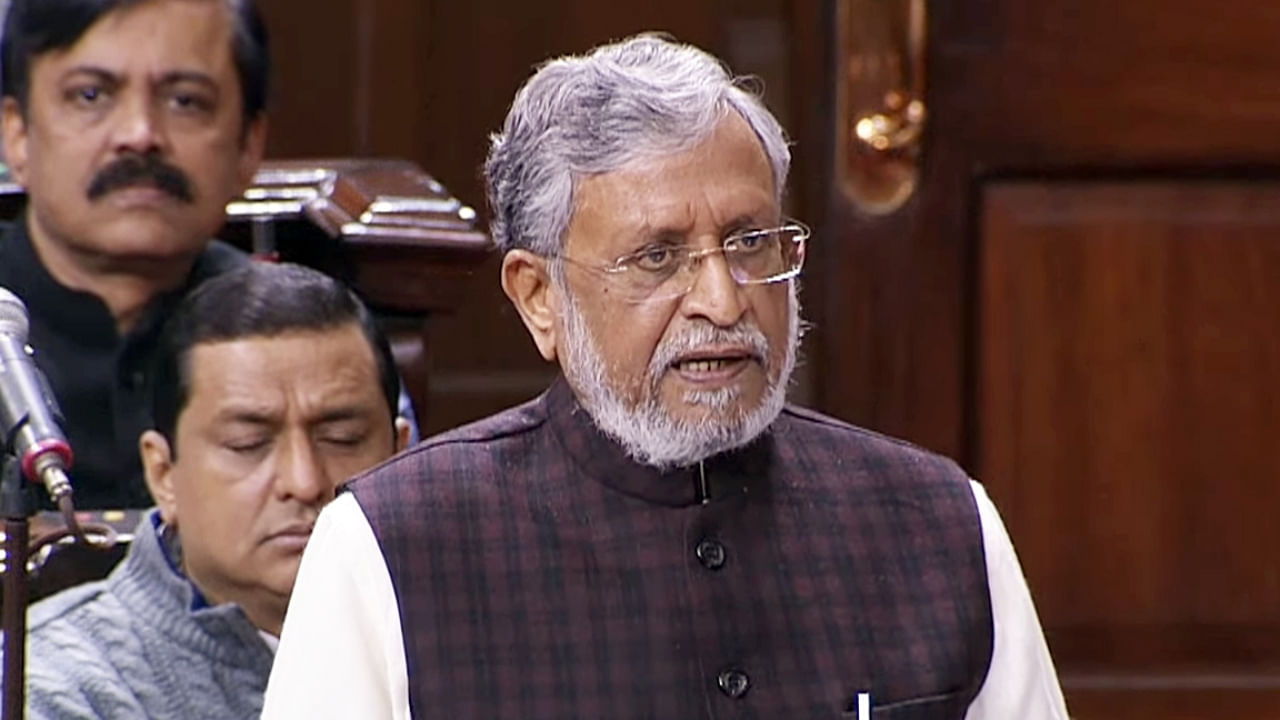
Senior BJP MP Sushil Kumar Modi on Monday opposed legalisation of same sex marriage, alleging that some Left-liberal people and activists want to impose western laws in the country, while urging the government to strongly oppose any such attempt.
He also called for the need for gender neutral legal marriageable age, saying the Muslim Personal Law permits girls to enter into marriages upon attaining puberty and it creates a dichotomy in the Indian legal architecture because the law fails to be in consonance with POCSO Act.
His demand on same sex marriage was made during the Zero Hour while he raised the issue of gender neutral legal marriageable age through a Special Mention.
Also Read | Cloud clinic for LGBT community in Bengaluru
Raising the issue in Rajya Sabha during Zero Hour, he also said that the judiciary should not give a judgement in favour of same sex marriage, which is against the "cultural ethos" of the country.
"There should be a debate in Parliament and society. Some Left-liberals and activists want to imitate the west and impose such laws in the country. I hope the government will strongly oppose any such move," he said.
Within India, he said, same sex marriage is neither recognised nor accepted by any uncodified person laws and codified statutes governing the institution of marriage in the country. "It would hence cause complete havoc with the delicate balance of personal laws in the country," he said.
"Laws related to adoption, domestic violence, divorce and the right to stay in marital homes are associated with the institution of marriage between men and women. Moreover, marriage is an institution wherein both men and women live together and carry forward the human chain by producing children," he said.
In a Special Mention in the Upper House later, Modi also pitched for the need for gender neutral legal marriageable age.
He said there must be consistency and gender-neutrality when it comes to the legal marriageable age across all religions and communities in the country.
“While the personal laws of Indian Christians, Parsis, Hindus, and the Special marriage Act, follow the legal marriageable age of 18 for women and 21 for men, the Muslim Personal Law, which remains uncodified, permits girls to enter into marriages upon attaining puberty,” he said.
“Consequently, legality of marriages involving girls in the age cohort of 15-17 years has also been upheld by the Delhi, Punjab and Haryana High Courts. This further creates a dichotomy in the Indian legal architecture because the law fails to be in consonance with POCSO Act,” he said.
Noting that Section 375 of IPC states that sexual intercourse with or without the consent of girls below the age of 18 years amounts to rape, he said, the government should ensure through legislation that all religious and personal laws embrace the same gender neutral legal marriageable age of 18, along with stringent penal provisions to prevent minor girls across communities from entering into marriages.
